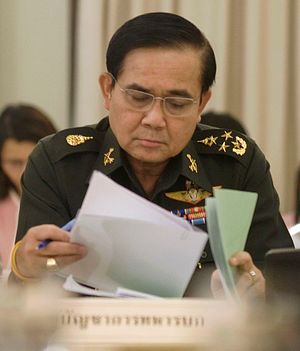Thailand’s new constitution, approved by majority of voters last month, threatens to undermine religious harmony in the country because of a provision that mandates the state to promote Theravada Buddhism.
Section 67 of the constitution is seen by some religious leaders as being biased in favor of Buddhism because it orders the state to protect Buddhism, “which has long been professed by the Thai people.”
While this provision was also present in the 2007 constitution, the new constitution contains this amendment: “The state shall establish measures and mechanisms to prevent the desecration of Buddhism in any form and encourage the participation of all Buddhists in the application of such measures and mechanisms.”
Therefore, any action interpreted as a threat to Buddhism or a “desecration” of Buddha’s teachings can be suppressed by the state. It is no surprise that the constitution was rejected by voters in Thailand’s southern provinces, a region with a majority Malay Muslim population.
Sensing the potential trouble that can be caused by a narrow interpretation of Section 67 of the constitution, Prime Minister Prayut Chan-o-cha moved quickly by issuing an order on August 22 to “patronize and protect all religions acknowledged by the Thai state and Thai people and to support the roles of people of all faiths in developing the nation and fostering national unity and reforms in manners which are not against the law and religious principles.”
The order took note that “some groups have distorted cultural diversity to cause conflicts among people of different faith.”
Bangkok Post published an editorial supporting Prayut’s decision. The editorial also urged the government to immediately amend the controversial provision of the constitution in order to avoid religious conflict.
“It is separatists and their pawns who will use the religious issue in coming weeks and months as a propaganda bludgeon. Gen. Prayut supported special action to amend the draft on the issue of the senate. He should consider special amendments to fix this possibly divisive issue immediately,” the newspaper’s editorial argued.
But Surapot Thaweesak, a religious scholar, is doubtful whether a mere order can contravene the constitution.
“Between the constitution and the order authorized by the junta leader which once is higher? Should the modern democratic society have religious duties as it is written in the constitution or as it is written on the order,” Surapot wrote on Facebook.
Another scholar, Khemthong Tonsakulrungruang from Chulalongkorn University, also noted that the order empowers various ministries to promote the “correct”’ teachings of Buddhism. He emphasized that the teachings of Buddhism are personal and can be interpreted in various ways. He warned that this latest order of the junta can make the situation more dangerous by imposing restrictions on religious beliefs.
“This order could lead to thought crime allegations. As a result, this order might curb freedom of expression and freedom of religion of minorities, as well as non-mainstream Buddhist schools. The government might like this measure as it provides more control over religious communities,” the scholar explained.
Thailand’s new constitution is supposed to boost the government’s national reconciliation program and engender unity in the country. But the clause on religion has already caused division because of its perceived bias against the religion of minority groups. Worse, the proposed remedy of the government could stifle religious freedom by prescribing the teaching of “correct” Buddhism.































